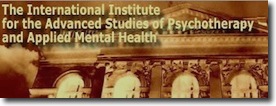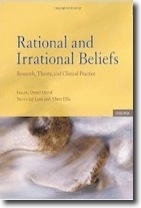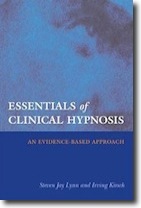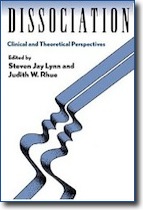
Steven Jay Lynn, PhD
Fellow
Binghamton, New York, USA
Steven Jay Lynn, PhD, ABPP, is a Distinguished Professor of Psychology at the State University of New York at Binghamton and Director of its Psychological Clinic and of its Laboratory of Consciousness and Cognition. He is also a licensed psychologist in independent practice and a diplomate in both clinical and forensic psychology.
Dr Lynn has published more than 270 articles and book chapters on the topics of hypnosis, fantasy, dissociation, trauma, and distinguishing science from pseudoscience. He has written or edited 19 books, many of which have received awards from professional organizations. He was ranked 49th on a list of “top producers of scholarly publications in clinical psychology PhD programs” (Steward, Wu, & Roberts, 2007). His research has been featured in numerous media venues including The New York Times and popular magazines, as well as television programs including ABC’s 20/20, the CBS Morning Show, Eye to Eye, the Discovery Channel, and the award-winning film documentary, Capturing the Friedmans. His research has been funded by the National Institute of Mental Health and the Ohio Department of Mental Health, and he has served as an expert witness on hypnosis and memory and dissociative disorders on a national and international basis.
Dr Lynn is a fellow of many professional organizations (e.g., American Psychological Association, American Psychological Society), and he has been the recipient of numerous professional awards including the Chancellor’s Award of the State University of New York for Scholarship and Creative Activities; the American Psychological Association’s Award for Distinguished Contributions to Scientific Hypnosis, as well as the APA’s Award for Distinguished Contributions to Clinical Hypnosis; the Milton H Erickson Award for Scientific Excellence of the American Society of Clinical Hypnosis; and the President’s Award for outstanding contributions to scientific and clinical hypnosis, by the Society of Clinical and Experimental Hypnosis. Dr Lynn is a past President of the American Psychological Association’s Division of Psychological Hypnosis, and serves on eleven editorial boards, including the Journal of Abnormal Psychology.
Dr Lynn earned his PhD in Clinical Psychology from Indiana University
Selected Books:
Handbook of Clinical Hypnosis, ed., with Judith W. Rhue & Irving Kirsch (American Psychological Association, 2nd ed., 2010). Hypnosis has always captured the attention of some of the most creative thinkers in the field of psychology. Today, hypnosis and hypnotic phenomena are studied with state-of-the-science neuroimaging techniques, and hypnosis has informed cognitive science (and vice-versa) in meaningful ways. Dr Lynn contributes to four chapters of the book (q.v.).
50 Great Myths of Popular Psychology: Shattering Widespread Misconceptions About Human Behavior, with Scott O. Lilienfeld, John Ruscio & Barry L. Beyerstein (Wiley-Blackwell, 2010). Popular myths are used as a vehicle for helping students and laypersons alike to distinguish science from pseudoscience — i.e., distinguishing factual from fictional claims — in popular psychology. Explores topics that many readers will relate to, but often misunderstand, such as “opposites attract,” “people use only 10% of their brains,” and handwriting reveals your personality. It provides a “mythbusting kit” for evaluating folk psychology claims in everyday life, and teaches essential critical thinking skills through detailed discussions of each myth. The book includes over 200 additional psychological myths for readers to explore, followed by a postscript of remarkable psychological findings that sound like myths but that are true. (Translations available in Spanish, Romanian, German, Dutch, Polish, and Czech.)
Rational and Irrational Beliefs: Research, Theory, and Clinical Practice, ed., with Daniel David & Albert Ellis (Oxford University Press, 2009). Leading scholars, researchers, and practitioners of rational emotive behavior therapy (REBT) and other cognitive-behavioral therapies (CBTs) share their perspectives and empirical findings on the nature of rational and irrational beliefs, the role of beliefs as mediators of functional and dysfunctional emotions and behaviors, and clinical approaches to modifying irrational beliefs, enhancing rational beliefs, and adaptive coping in the face of stressful life events. Dr Lynn also co-authored three chapters of the book (q.v.).
Psychology: From Inquiry to Understanding, with Scott O. Lilienfeld, Nancy J. Woolf & Laura L. Namy (Prentice Hall, 2008). This textbook intends to provide a framework for students of psychology, by encouraging them to question, and then teaching them how to test their assumptions. The authors focus on motivating students to use scientific thinking skills to better understand the complex world of psychology.
Navigating the Mindfield: A Guide to Separating Science from Pseudoscience in Mental Health, editor, with John Ruscio & Scott O. Lilienfeld (Prometheus, 2008). A dizzying array of popular psychology books, articles, and promotion campaigns tout alleged remedies for psychological problems. Faced with this confusion of therapeutic offerings, consumers of mental health services can use guidelines for identifying an effective therapy. This book brings together accessible, non-technical articles by leading scientific researchers and clinicians to help answer critical questions which arise when seeking mental health care. Dr Lynn co-authored two chapters, while ISM Fellows James D. Herbert, Scott O. Lilienfeld, Elizabeth F. Loftus, Jean A. Mercer authored or co-authored many others.
Hypnosis: A Brief History, with Judith Pintar (Wiley-Blackwell, 2008). The authors cross disciplinary boundaries to explain current advances and controversies surrounding the use of hypnosis through an exploration of the history of its development. The book examines the social and cultural contexts of the theories, development, and practice of hypnosis. It explores shifting beliefs about the nature of hypnosis, and investigates references to the apparent power of hypnosis over memory and personal identity.
Essentials of Clinical Hypnosis: An Evidence-based Approach, with Irving Kirsch (American Psychological Association, 2005). This is a clinical book with a research base. The clinical strategies and techniques presented are ones Drs Lynn and Kirsch have used in their practice and taught to their graduate students and thousands of professionals around the globe. Many of the specific techniques they describe have been validated in clinical trials and outcome studies, and their approach to most strategic issues has been shaped by their understanding of the research literature in hypnosis, psychotherapy, and psychopathology. If there is a fundamental difference between this book and the many other guides that have been published on clinical applications of hypnosis, it is the degree to which the principles and practices the authors describe are evidence-based.
Varieties of Anomalous Experience: Examining the Scientific Evidence, editor, with Etzel Cardeña & Stanley C. Krippner (American Psychological Association, 2004). Explores anomalous experiences, such as hallucinations, lucid dreams, alien abductions, mysticism, anomalous healings, psi events and past lives. Discusses current research and theories, individual and cultural differences, methodological issues, related psychopathology, aftereffects, and clinical implications. Dr Lynn contributed to the book’s introduction and a chapter (q.v.).
Science and Pseudoscience in Clinical Psychology, editor, with Scott O. Lilienfeld & Jeffrey M. Lohr (Guilford, 2002). This is the first major text designed to help professionals and students evaluate the merits of popular yet controversial practices in clinical psychology, differentiating those that can stand up to the rigors of science from those that cannot. Leading researchers review widely used therapies for alcoholism, infantile autism, ADHD, and posttraumatic stress disorder; herbal remedies for depression and anxiety; suggestive techniques for memory recovery; and self-help models. Other topics covered include issues surrounding psychological expert testimony, the uses of projective assessment techniques, and unanswered questions about dissociative identity disorder. Providing knowledge to guide truly accountable mental health practice, the volume also is intended to impart critical skills for designing and evaluating psychological research programs. Dr Lynn has co-authored some of the chapters herein (see publications below). (Japanese translation available.)
Truth in Memory, editor, with Kevin M. McConkey (Guilford Press, 1998). Leading researchers and practitioners review the current literature, describe new findings and clinical techniques, and draw upon their extensive experience in the field to provide diverse perspectives on the place of memory in our lives and the impact upon memory of personal, interpersonal, and situational influences. Dr Lynn also was a co-author on one chapter (q.v.).
Dissociation: Clinical and Theoretical Perspectives, editor, with Judith W. Rhue (Guilford Press, 1994). Responding to the need for an authoritative reference on this topic,the authors present an unusually comprehensive volume, covering the major aspects of dissociation — from the predominant models and diagnostic and treatment approaches, to significant research, clinical, and conceptual issues. The book confronts many of the controversies and debates surrounding dissociation. Founded on research and grounded in theory, it is an important addition to the scholarly literature. Dr Lynn co-authored the introduction and two of the chapters (q.v.). There is also a chapter co-authored with ISM Fellow EF Loftus.
Selected Publications:
- “Hypnosis,” in VS Ramchandran, ed., Encyclopedia of Human Behavior (Elsevier, 2nd ed.). (in press)
- “Hypnotic responsiveness: expectancy, attitudes, fantasy proneness, absorption, and gender” (with JP Green), International Journal of Clinical and Experimental Hypnosis, 2011 Jan; 59(1):.
- “Event report training: an examination of the efficacy of a new intervention to improve children’s eyewitness reports” (with E Krackow), Applied Cognitive Psychology, 2010 Sep; 24(6): 868-884. [DOI]
- “Cognitive processes, trauma, and dissociation: misconceptions and misrepresentations (Reply to Bremner, 2009)” (with T Giesbrecht, SO Lilienfeld & H Merckelbach), Psychological Bulletin, 2010 Jan; 136(1):7-11.
- “Adaptive beliefs are pervasive, but the evidence for positive illusions is weak (Commentary on “The evolution of misbelief” by McKay and Dennett)” (with DS Wilson), Behavioral and Brain Sciences, 2009 Dec; 32(6):539-540. [abstract]
- “Forensic hypnosis: the state of science” (with S Barnes, A Matthews, SO Lilienfeld, E Boycheva, A Deming & MN Hallquist), in JL Skeem, KS Douglas & SO Lilienfeld, eds., Psychological Science in the Courtroom: Consensus and Controversy (Guilford, 2009, q.v.):80-99.
- “Cognitive processes in dissociation: an analysis of core theoretical assumptions” (with T Geisbrecht, SO Lilienfeld & H Merckelbach), Psychological Bulletin, 2008 Sep; 134(5):617-647. [abstract]
- “Memory recovery techniques in psychotherapy: problems and pitfalls” (with EF Loftus, SO Lilienfeld & TG Lock), in SO Lilienfeld, J Ruscio & SJ Lynn, eds., Navigating the Mindfield: A Guide to Separating Science from Pseudoscience in Mental Health (, 2008, q.v.):283-304.
- “Social cognitive theories of hypnosis” (with I Kirsch & MN Hallquist), in MR Nash & AJ Barnier, eds., The Oxford Handbook of Hypnosis (Oxford University Press, 2007):111-140.
- “Some forms of psychopathology are partly socially constructed” (with SO Lilienfeld, A Matthews, JC Williams & MN Hallquist), in SO Lilienfeld & WT O’Donohue, eds., The Great Ideas of Clinical Science: 17 Principles that Every Mental Health Professional Should Understand (Routledge, 2006):347-374.
- “Pseudoscience, nonscience, and nonsense in clinical psychology: dangers and remedies” (with SO Lilienfeld, KA Fowler & JM Lohr), in NA Cummings & RH Wright, eds., Destructive Trends in Mental Health: The Well Intentioned Path to Harm (Taylor & Francis, 2005):187-218.
- “The role of cognition in classical and operant conditioning” (with I Kirsch, M Vigorito & RR Miller), Journal of Clinical Psychology, 2004 Apr; 60(4):369-392. [abstract]
- “Cultural scripts, memories of childhood abuse, and multiple identities: a study of role-played enactments” (with J Stafford), International Journal of Clinical and Experimental Hypnosis, 2002 Jan; 50(1):67-85. [abstract]
- “The remembrance of things past: problematic memory recovery techniques in psychotherapy” (with TG Lock, EF Loftus, E Krackow & SO Lilienfeld), in SO Lilienfeld, SJ Lynn & JM Lohr, eds., Science and Pseudoscience in Clinical Psychology (Guilford, 2002, q.v.):205-239.
- “Multiple personality disorder” (with SO Lilienfeld), in MB Shermer, ed., The Skeptic Encyclopedia of Pseudoscience (ABC-Clio, 2002), 1:146-151.
- “Hypnosis as an empirically supported adjunctive technique: the state of the evidence” (with I Kirsch, A Barabasz, E Cardeña & D Patterson), International Journal of Clinical and Experimental Hypnosis, 2000 Apr; 48(2):343-361. [abstract]
- “Automaticity in clinical psychology” (with I Kirsch), American Psychologist, 1999 Jul; 54(7):504-515. [abstract]
- “Dissociative Identity Disorder and the sociocognitive model: recalling the lessons of the past” (with SO Lilienfeld, I Kirsch, JF Chaves, TR Sarbin, GK Ganaway & RA Powell), Psychological Bulletin, 1999 Sep; 125(5):507-523.
- “Changing beliefs and memories through dream interpretation” (with GAL Mazzoni, EF Loftus & A Seitz), Applied Cognitive Psychology, 1999 Apr; 13(2):125-144. [abstract]
- “Dissociation theories of hypnosis” (with I Kirsch), Psychological Bulletin, 1998 Jan; 123(1):100-115. [abstract]
- “The assessment, reliability, and determinants of early memory reports” (with P Malinoski & H Sivec), in SJ Lynn & KM McConkey, eds., Truth in Memory (Guilford, 1998, q.v.):109-136.
- “Recalling more childhood events leads to judgments of poorer memory: Implications for the recovered/false memory debate” (with RF Belli, P Winkielman, JD Read & N Schwarz), Psychonomic Bulletin & Review, 1998; 5(2): 318-323.
- “Recalling the unrecallable: should hypnosis be used for memory recovery in psychotherapy?” (with TG Lock, B Myers & DG Payne), Current Directions in Psychological Science, 1997 Jun; 6(3):79-83. [excerpt]
- “Memory in the hall of mirrors: The experience of “retractors” in psychotherapy” (with J Stafford, P Malinoski & J Pintar), Psychological Inquiry, 1997 Dec; 8(4):307-312. [DOI]
- “Unacknowledged vs. acknowledged rape victims: situational factors, post-traumatic stress reactions, and dissociation” (with MJ Layman & CA Gidycz), Journal of Abnormal Psychology, 1996 Feb; 105(1):124-131. [abstract]
- “The altered state of hypnosis: Changes in the theoretical landscape” (with I Kirsch), American Psychologist, 1995 Oct; 50(10):846-858. [abstract]
- “Hypnotic involuntariness: a social cognitive analysis” (with JW Rhue & JR Weekes), Psychological Review, 1990 Apr; 97(2):169-184. [abstract]
- “Fantasy proneness: hypnosis, developmental antecedents, and psychopathology” (with JW Rhue), American Psychologist, 1988 Jan; 43(1):35-44. [abstract]
In the News:
- “The mythbusters of psychology,” by Harriet A. Hall, Science Based Medicine, 2009 Nov 10.
- “Suburban warrior syndrome,” by Ethan Gilsdorf, Psychology Today, 2004 Sep 1.
- “[Review:] Science and Pseudoscience in Clinical Psychology,” in Journal of the American Medical Association, 2003 Jul 9; 290(2):268-269. [excerpt]
- "Hypnosis as smoking cessation therapy needs further scrutiny," in Science Daily, 2000 May 31.
- “Hypnosis may cause false memories,” by Jane E. Brody, The New York Times, 1997 Sep 10.
- “For some people, half of day Is spent in fantasy,” by Daniel Goleman, The New York Times, 1987 Dec 15.
The Online Steven Jay Lynn:

















